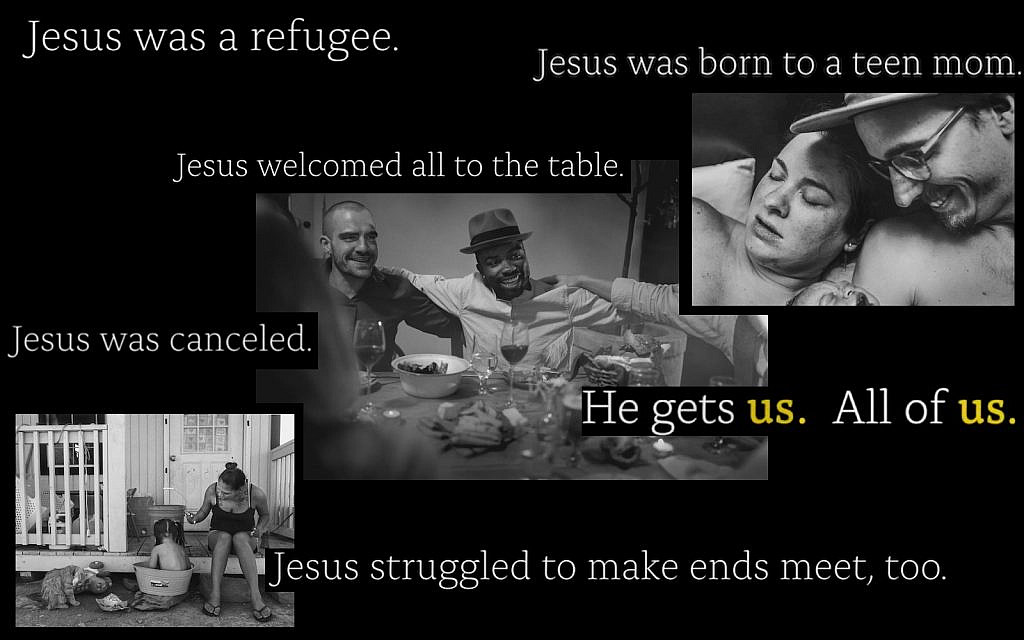אצטדין – The Gladiator Stadium
The Rabbis in both Talmuds were very unhappy with Jews who attended gladiator[3] fights to the death. The Talmud Yerushalmi (Avodah Zarah 1:7) quotes a Tosefta from Avodah Zarah 2:2
that offers two opinions. The first anonymous Rabbi cited says,
“Behold, one who sits in a stadium is considered to have shed blood.”
The second position, that of R. Natan, claims that perhaps we ought to
permit attendance at gladiator events because you might be able to cheer
and scream and thereby save someone’s life or, perhaps, you will be in a
position to offer testimony that someone’s husband had died.
R. Natan appears to think that there
might be overriding humanitarian benefits that allow one to attend a
gladiator contest which would otherwise be totally forbidden. Both the
anonymous position and R. Natan assume that there is a serious halakhic
problem with simply attending an event where people will be killing each
other.
When these two positions appear in the Bavli (Avodah Zarah 18b),
the first anonymous voice is printed (in our standard printing) as
saying that one may not attend a gladiator contest because it is
considered to be a “Moshav Leitzim – a gathering of scoffers.”
That position seems very different from that found in the Yerushalmi and
the Tosefta. Bach, however, in his glosses on the page, emends the text
of the Bavli to align completely with the Yerushalmi and the Tosefta[4]. Dikdukei Soferim (ad loc.)[5]
notes that the text appears in the Munich manuscript as “שׁוֹפֵךְ
דָּמִים – like you shed blood.” Modern printings of the Talmud consider
the emendation compelling enough that they put Moshav Leitzim in parentheses and Shofkhei Damim
in brackets. It thus makes sense to conclude that the Bavli also
considers attending a gladiator contest akin to shedding blood.
It is important to note that these
spectators were not assumed to be participating in the bloodthirsty
fights of the gladiators. According to this view, simply watching people
engage in the violence of the gladiators made them a kind of accessory
to murder.
Is the modern game of professional
football as bad as the gladiators’ contests? No, that would not be a
reasonable claim. These men are not actively killing each other.
However, the prevalence of brain damage for so many players is deeply
troubling. The sad reality is that one of the main reasons people watch
the NFL is to see the “big hits.” Those moments fill endless highlight
reels and get shared in thousands of youtube videos with millions of
views.
Steve Almond quotes two of the most
popular football personalities: Ray Lewis – arguably amongst the
greatest middle linebackers in the history of the NFL, and Michael
Strahan who was a dominant defensive end for fifteen years and went on
to become a commentator of Fox NFL Sunday, ABC’s Good Morning America
and Live! With Kelly and Michael.
Ray Lewis put it
like this: ‘The long runs, the touchdowns and all that, that’s the
glamor. But the game is about taking a man down, physically and
mentally.’ Michael Strahan is even more candid. ‘It’s the most perfect
feeling in the world to know you’ve hit a guy just right, that you’ve
maximized the physical pain he can feel…You feel the life just go out of
him.’ Aggression isn’t just some unfortunate-but-necessary aspect of
football. What Strahan is describing is the definition of sadism, the pleasure one takes in harming another.[6]
קנגיון – Hunting
Rabbi Yehezkel Landau (d. 1793, Prague) wrote a fascinating teshuvah in his Noda be-Yehudah[7]
where he addressed the question of the permissibility of hunting for
sport. There, R. Landau struggles to find a formal prohibition either in
the context of tza’ar ba’alei hayyim or bal tashhit but ultimately concludes that Jews should not engage in hunting because it is “akhzariyut[8] – viciousness.”[9]
The Reisha Rav, Rabbi Aharon Levine (d. 1939, Poland, hy”d), in his masterful commentary on the Torah, Ha-Derash Ve-Ha’Iyun on Parashat Toldot (chapter 114, pp. 146-147) quotes another gemara from Avodah Zarah 18b
that appears to be an explicit prohibition on hunting. After addressing
the problems with gladiators, the gemara says, “Rebbi Shimon ben Pazi darshened…nor stood in the way of sinners (Psalms 1:1) this refers to one who has not stood at bestial contests [bekinigiyyon].” The Reisha Rav does not understand why Noda be-Yehudah does not quote this gemara in his teshuvah as a direct support for the prohibition on hunting.
Rabbi Mordechai Yaffe-Shlesinger in his commentary on the Torah, Bigdei Mordekhai, also in the beginning of Parashat Toldot,
quotes the question of the Reisha Rav. However, he offers a different
understanding of קִנִגְיוֹן that has implications for the question of
watching football. R. Shlesinger, based on Rashi’s comment on the word,
explains that קִנִגְיוֹן refers to the way non-Jews used dogs to hunt
other smaller animals[10].
R. Yaffe-Shlesinger notes that the
prohibition on “קִנִגְיוֹן” is not really referring to the Jew actually
hunting with dogs. Rather, it refers to a Jew watching a non-Jew hunt
with dogs in the hope that he might witness this grotesque act of dogs
capturing an animal.[11] To be very clear, the prohibition is not formally linked to tza’ar ba’alei hayyim; rather, it is about showing up to witness the violence of dogs hunting animals.[12]
A similar idea can be found in the work of R. Tzadok ha-Kohen of Lublin[13]. He wrote, “And the matter of knigin
is a military sport of animals.” The key here is that they understand
the prohibition as applying to a Jew who simply shows up to witness the
violence of animals against other animals.
While it would not be reasonable to make
a direct comparison from American football to gladiators, it seems to
me that if we are prohibited from watching animal violence, all the more
so that we may not watch human violence.
רחמנים בני רחמנים – Values
How should the Modern Orthodox community relate to the popularity of the NFL? There is no explicit line in the Shulhan Arukh
that can be marshaled in direct opposition to watching professional
football. However, the values that drove the Rabbis of the Talmud are
quite clear. Watching people engage in violence that can lead to death
makes one an accessory to murder. The Rabbis also understood that
watching animal violence for sport was prohibited.
The Jewish People are lovingly referred to as “רחמנים בני רחמנים – merciful the descendants of merciful.”[14]
If nothing else, the valorization of the violence of football goes
against this most basic aspiration of what it means to be a Jew. It is
important to note that there are other sports or behaviors that might
fall under this same rubric. One might wonder why to focus particularly
on football.
First of all, we must often be reminded
not to let the perfect be the enemy of the good. It may, in fact, be the
case that we should not watch boxing or hockey, but those sports are
not part of my own social milieu. Second, many shuls in the US
host Super Bowl parties while very few host parties for the Stanley Cup
(with apologies to my Canadian colleagues if this is common place in
your communities). Finally, the NFL has been particularly egregious in
its attempts to cover up the brain damage that was caused for many
years. They also seem unwilling to engage in a serious re-evaluation of
what the game might look like in order to protect the players.
To be very clear, the NFL wants us to
look at Damar Hamlin’s recent and tragic cardiac arrest because he will,
thank God, likely get better. They want to focus our attention on a
type of injury that is unusual, shocking, and ultimately allows for a
happy ending. The reality is that this focus allows for a kind
suppression of our empathy, a turning away from the real issue, which is
the long-term brain damage affecting so many of the players. That
injury can’t be seen in one play, one game, or even one season.
Chuck Klosterman who, among other things
served as the ethicist for the NY Times Sunday magazine wrote, “I
realize an argument can be made that eroticized violence is inherent to
any collision spectator sport, and that people who love football are
tacitly endorsing (and unconsciously embracing) a barbaric activity that
damages human bodies for entertainment and money.[15]”
Klosterman refers to the New Orleans
Saints “bounty controversy” in which, “players and at least one
assistant coach maintained a bounty pool of up to $50,000 the last three
seasons to reward game-ending injuries inflicted on opposing players,
including Brett Favre and Kurt Warner, the NFL said Friday. “Knockouts” were worth $1,500 and “cart-offs” $1,000, with payments doubled or tripled for the playoffs.[16]”
He then goes on to say, “Talking
intellectually about football now means talking about whether football
should even exist; in my lifetime, the game has never been so
contentious.” Klosterman is asking the right questions. While this may
not be the gladiators, the more you truly understand the violence of the
game and the brain damage that is an inevitable result of play at the
highest level, the closer it becomes.
I don’t think that our community is in a
position to advocate for the end of a multi-billion dollar American
industry. The economic reality of the NFL in the United States is such
that real change will have to come through the legal system. However, we
could start with a more modest set of goals.
First, shuls should no longer host Super Bowl parties. In fact, Super Bowl Sunday is a great day to host a shiur.
You can even serve wings and enjoy the time with family and friends.
Second, we should discourage people from spending money on tickets. That
kind of direct financial support has to be understood as worse than
just the eyeballs on the screen for the advertisers.
Third, and this is hard, we all need to
take the time to have some serious conversations with our children.
There are so many ways to spend time as a family that can be carved out
on a weekly basis. Not everyone will be able to sit and learn or attend a
shiur as a family, and that is fine. However, you could go for
a walk in nature, watch a movie at home with some popcorn, or simply
have a family dinner.
There is also a deeper problem of which
the Modern Orthodox love of American football seems like a symptom. How
do we make sure not to suppress our own ethical intuitions in a sphere
that lacks clear halakhic guidelines? It is always hard to find the
right balance between contemporary American culture and what Halakhah
demands of us. Being committed to living in the world and engaging with
the best of modernity does not mean that everything is encouraged or
even permitted. We need to remind ourselves that one of the roles of the
Jewish people is to be countercultural, to push back against behaviors
and values that, even if they don’t explicitly violate a line of the Shulhan Arukh, are not in line with the Torah’s worldview.
A community that cares about religious values, not just halakhah,
must continue to work towards creating a discourse of values rooted in
Torah sources carrying obligatory or, at least, persuasive force. To
avoid doing so is to limit our tradition to purely legalistic concerns,
which is a disservice both to the tradition and to the fullness of what a
religious life can and should be.
Living, “the fullness of… religious
life” lies at the heart of the struggle to navigate the boundaries of
modern values and halakhic demands. Not only do we do a disservice to
tradition, but we also leave the next generation without a robust
framework in which they can make ethical and religious decisions.
I personally find a deep sense of the presence of God in the careful study of the Shulhan Arukh together with its attendant commentaries. Watching the Halakhah unfold from Mishnah to Mishnah Berurah
is my spiritual center. For some, this might very well be what they
need. However, we are learning that this is simply not enough for many,
many serious Jews. People are seeking an Agaddah to support their
Halakhah. While one can not point to a text that explicitly prohibits
watching the NFL, it is clear to me the weight of rabbinic values leans
heavily on withdrawing from this kind of behavior.
[1] See Steve Almond, Against Football: One Fan’s Reluctant Manifesto (2014), 19
[2]
The prevalence of chronic traumatic encephalopathy (CTE) among NFL
players is difficult to pinpoint – in large part because the NFL
continues to block the placing of sensors inside helmets. While there
are concussions protocols in place, many players find ways to work
around them and play regardless. The more dangerous reality is that
consistent sub-concussive brain injuries lead to CTE. As of March 2014
of the fifty-five former players’ brains that had been studied,
fifty-four of them suffered from CTE. When untreated, and often even
with treatment, CTE leads to mood disorders, anger, depression, suicidal
tendencies, short term memory loss, and dementia.
[3] Two articles that are helpful in understanding the Talmudic and Midrashic approach to gladiators are: 1) Stewart Rubin, “Jewish Opposition to the Ancient Gladiatorial Games,” Hakirah
26 (2019). In this piece Rubin shows the way in which Jewish opposition
to gladiators deviated from the general population. He also notes that
Josephus in the Antiquities of the Jews, Book 16 Chapter 8 describes Herod’s building of just such a stadium in Jerusalem. 2) Benjamin Williams, “The
Parable of the Disappearing Gladiators: Interpreting a Late Antique
Cultural Reference in Genesis Rabba’s Exposition of the Cain and Abel
Narrative,” Journal for the Study of Judaism 53 (2022). Williams unpacks to what extent Hazal had awareness of gladiatorial games. He also deals with text that says that Reish Lakish was himself a gladiator.
[4]
The gemara quotes the Tosefta in order to use the debate between the
Tanna Kamma and R. Natan to resolve an apparent contradiction between
two other beraitot regarding whether it is permitted to attend
the gladiator contests or not. The original position that was stringent
used the phrase moshav leitzim and the first verse of the first
chapter in Psalms to explain the potential problem with the gladiators.
It seems likely thatwhen the gemara then sought to bring the Tosefta, a
later copyist shifted the original language of “shedding blood” to
match the phrase of the first beraita.
[5] See page 46 note 7, where Rav Rabinovitch also refers to Ein Ya’akov as
having the text like this. He also notes that the Munich manuscript has
the words דברי רבי, ascribing that position to a different Tanna.
[6] See Steve Almond, Against Football: One Fan’s Reluctant Manifesto (2014), 135.
[7] Mahadura Tinyana Yoreh Deah 10, cited in Pit’hei Teshuvah Yoreh Deah 28:10.
[8] For a fascinating treatment of the destructive nature of akhzariyut, see the following three essays of Rav Shlomo Wolbe. He first wrote about in Ma’amarei Yemei Ha-Ratzon
in Elul 5718/Tishrei 5719 (September 1958). He came back to the same
idea in a talk that he gave in the secular Kibbutz Hulda in Heshvan 5729
(November 1968) published in Bein Sheshet Le-Asor. R. Wolbe returned to this idea in the 8th volume of the journal Bi-Shevilei Ha-Refuah published Sivan 5742 (May/June 1982). For R. Wolbe, akhzariyut
is about creating distance from the self. In order to engage in
problematic behavior, we have to be able to ignore our own internal
moral compass.
[9] He is also concerned that engaging in this kind of behavior can put the person in a potentially life threatening situation.
[10] This explanation also appears in Or Zarua quoted by Rema (Orah Hayyim 316:2, based on his comment in the Darkei Moshe note 2). See Peri Megadim on Magen Avraham 5 who explains that if this is your job it might be permitted. If, however, it is only for the sake of a pleasure trip (tiyul) then it is certainly prohibited.
[11] Rav Wosner in Shiurei Shevet Ha-Levi 7:155
uses this gemara to basically prohibit television. While I am not
prepared to go quite that far, I think that Rav Wosner has picked up on
an important ethos of the gemara. Watching violence be portrayed on
television in which no one gets injured is vastly different from
watching real live violence. In the Teshuvot Mahari Bruna 71 ,
he was asked if betting on horses falls under this same prohibition.
Thank you to my friend and teacher Rabbi Refael Kroizer for pointing me
in this direction.
[12] See also the Midrash in Vayikra Rabbah 13:3, quoted by the Darkei Moshe on the Tur Orah Hayim 316:2. In a teshuvah
of the Maharam of Rothenberg (Lvov printing #27), he makes a similar
connection but thinks that it is about the Jew him or herself using dogs
to hunt other animals. The encyclopedic work Tza’ar Ba’alei Hayyim Be-Halakhah U-be’Aggadah
by Rabbi Yitzhak Nahman ben Rav Avraham Eshkoli, in the fifth chapter
on page 183 to 185, outlines several different approaches to קנגיון and
concludes that included in each approach is the prohibition to watch the
kind of violence that occurs when animals are used to hunt other
animals.
[13] Pri Tzadik, “Shemot Le-Rosh Hodesh Adar. “
[14] It appears that this popular phrase has its origin in the Sefer ha-Hinukh; see Parashat Mishpatim Mitzvot 42 and 44, as well as Parashat Shoftim Mitzvah 498. The Rambam has a similar formulation in Hilkhot Issurei Biah 19:17. Both appear to be based on the gemara in Beitzah 32.
[15] Chuck Klosterman, “The Two Lines that Never Cross.” https://grantland.com/features/the-nonexistent-intersection-nfl-popularity-violence/
[16] “NFL: Saints defense had ‘bounty’ fund.” https://www.espn.com/nfl/story/_/id/7638603/new-orleans-saints-defense-had-bounty-program-nfl-says
https://thelehrhaus.com/commentary/american-football-a-case-study-in-the-limits-of-halakhah-and-the-claim-of-ethics/?utm_source=Lehrhaus+Readers&utm_campaign=487862b650-Lehrhaus+Latest+152_COPY_01&utm_medium=email&utm_term=0_5effc5ad09-487862b650-19243567&mc_cid=487862b650&mc_eid=a570c54e7f

















